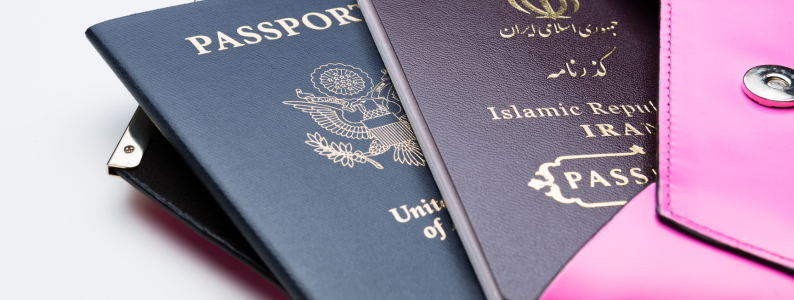Ask a Hague Convention Lawyer: Dual Citizenships and International Custody Disputes
International child custody disputes can be some of the most challenging legal matters to navigate. When dual citizenship is involved, the complexity only increases, often creating jurisdictional conflicts and difficult questions about the child’s best interests.
At Masters Law Group, we are highly experienced in guiding families through these delicate situations, helping parents understand their rights and obligations under international law and rapidly evolving U.S. immigration and citizenship policy.
In this blog, we explore how dual citizenship affects international custody disputes, how recent proposals and executive actions under President Trump’s administration may shape dual‑citizenship issues, the role of the Hague Convention, and key considerations for parents caught in these emotionally charged circumstances.
Understanding Dual Citizenship in International Custody Cases
Dual citizenship occurs when a child or parent is recognized as a citizen of two countries. In today’s globalized world, dual citizenship is increasingly common due to birth abroad, naturalization, or parental nationality. While dual citizenship can offer significant benefits, such as access to healthcare, education, and social services in multiple countries, it can also complicate custody matters.
Jurisdictional Challenges
One of the central issues in international custody disputes is jurisdiction: which country’s courts have the authority to hear the case? Dual citizenship can lead to conflicting claims:
- Country of habitual residence: This is often the primary factor in determining jurisdiction. Courts usually favor the country where the child has lived most consistently.
- Country of nationality: Some countries give priority to citizens, meaning a dual-national child could theoretically have multiple courts claiming authority.
- Parental nationality: The nationality of the parent seeking custody can also influence court decisions, particularly in countries that favor their citizens in family law matters.
Because jurisdiction determines which laws apply and which court can enforce custody orders, understanding how dual citizenship interacts with these rules is critical.
2025 Policy Debate: Proposals Targeting Dual Citizenship
As of December 2025, there is no federal statute in force that categorically abolishes or criminalizes dual citizenship for U.S. citizens, but there is an unprecedented effort in Congress to change that. The most visible proposal is the Exclusive Citizenship Act of 2025, introduced by Senator Bernie Moreno, which aims to end dual or multiple citizenship for Americans.
Key features of the bill include:
- A nationwide ban on dual or multiple citizenship, stating that an individual may not be a citizen or national of the United States while also holding any foreign citizenship.
- A one‑year grace period during which existing dual citizens would have to choose between their U.S. and non‑U.S. nationality, with noncompliance treated as voluntary relinquishment of U.S. citizenship.
- Automatic loss of U.S. citizenship for individuals who naturalize in another country after the law’s effective date.
- Creation of a federal registry of dual citizens to facilitate enforcement and immigration processing.
This proposal has generated significant controversy, with legal and advocacy organizations arguing that it is unconstitutional and would disrupt the lives of millions of Americans, including families with children who have dual citizenship through birth or parentage. For now, it remains a bill and not an enacted law, but parents in international custody disputes should be aware that the legal environment around dual citizenship is politically volatile.
The Hague Convention on the Civil Aspects of International Child Abduction
The Hague Convention is an international treaty designed to protect children from wrongful removal or retention across international borders. It provides a legal framework to help ensure that custody disputes are resolved in the child’s country of habitual residence, promoting prompt return rather than prolonged litigation abroad.
Key Principles of the Hague Convention
- Return of the Child: The Convention primarily seeks to return a wrongfully removed or retained child to their country of habitual residence.
- Prompt Resolution: It emphasizes expediency to minimize disruption to the child’s life.
- Protection of Rights: It respects the legal custody rights of parents and guardians, helping ensure that disputes are resolved according to applicable family law.
How Dual Citizenship Affects Hague Convention Cases
Dual citizenship adds a layer of complexity to Hague cases because multiple countries may claim authority over the child:
- Multiple Applicable Laws: Courts in one country may consider the child a national with rights under its law, while another country may see the child as a foreign national subject to different legal principles.
- Non-Hague Signatory Countries: Some nations do not participate in the Hague Convention. If one country involved in the dispute is a non-signatory, enforcing custody orders can become difficult.
- Parental Consent and Abduction Allegations: Allegations of wrongful removal or retention may be interpreted differently depending on the child’s citizenship status. For example, a parent in one country may have legal permission to take the child abroad based on nationality, while the other parent may argue it constitutes abduction under the Hague rules.
Because of these nuances, parents involved in dual citizenship custody cases need guidance from experienced Hague Convention lawyers who understand both international treaties and the domestic laws of the relevant countries.
Executive Actions and Birthright Citizenship in 2025
Separate from the dual‑citizenship bill, the Trump administration has also pursued executive actions concerning birthright citizenship, which could indirectly affect future dual‑national children. One 2025 executive order seeks to limit automatic U.S. citizenship for certain children born in the United States, tying citizenship to the parents’ immigration status.
Litigation over these measures has been intense, and, as of mid‑ to late‑2025, court decisions have restricted or delayed full implementation of some changes, meaning that for many children born in the U.S., the traditional rule still applies for now. Nonetheless, these actions signal an ongoing policy trend toward narrowing access to citizenship and could affect how future children acquire or claim dual nationality.
Parents contemplating international relocation, especially during pregnancy or with very young children, should be particularly mindful of how shifting rules around birthright citizenship and recognition of nationality may interact with later custody and Hague Convention proceedings.
Common Scenarios Involving Dual Citizenship
Dual citizenship often comes into play in three main types of custody disputes:
1. Child Born Abroad to Citizens of Different Countries
Consider a child born in France to one U.S. citizen parent and one French citizen parent. If the parents separate and one parent takes the child to the U.S., the courts may face conflicting claims:
- France may view the child as a French citizen entitled to French law protections.
- The U.S. may consider the child a U.S. citizen, potentially allowing American courts to hear custody matters.
- The Hague Convention may apply if both countries are signatories, but differences in procedural requirements and legal interpretations can complicate enforcement.
2. Parental Relocation Across Borders
Parents may relocate for work, family, or personal reasons. When a child holds dual citizenship:
- The moving parent may argue that the relocation is in the child’s best interests.
- The non-relocating parent may claim that removal violates custody rights.
- Courts must balance the child’s habitual residence, nationality, and best interests while considering international treaties.
3. Abduction Claims Between Dual Citizenship Countries
In some cases, one parent may remove the child from one country to another without consent. When dual citizenship is involved:
- The abducting parent may claim that the child is legally permitted to enter the new country based on nationality.
- The left-behind parent may pursue a Hague Convention petition, arguing wrongful removal or retention.
- Jurisdictional disputes may arise if the child has equal citizenship rights in both countries, requiring careful legal strategy to help secure the child’s return.
Legal Considerations for Parents in Dual Citizenship Custody Disputes
Navigating dual citizenship custody disputes requires careful attention to both domestic and international law. Key considerations include:
1. Habitual Residence vs. Nationality
The Hague Convention prioritizes habitual residence over nationality when determining jurisdiction. However, dual citizenship can blur this distinction. Lawyers often need to provide evidence of:
- Duration of residence in each country
- School enrollment and social integration
- Parental involvement and living arrangements
Courts use these factors to determine which country’s courts have primary authority.
2. Enforcement of Foreign Custody Orders
Obtaining a custody order is only part of the process; enforcing it internationally can be challenging:
- Hague Convention signatories generally enforce foreign custody orders promptly.
- Non-signatory countries may require separate legal proceedings.
- Dual citizenship may allow a child to reside legally in a country even if a custody order from another country exists, complicating enforcement.
3. Competing Legal Systems
Different countries have varying standards for custody, child welfare, and parental rights. In dual citizenship cases:
- One country may favor joint custody, while another prefers sole custody.
- Some countries may consider a child’s preference more heavily, particularly for older children.
- Lawyers must anticipate how courts in both jurisdictions will interpret custody laws and international treaties.
4. Parental Agreements and Mediation
Parents can often help minimize conflict by:
- Establishing written custody agreements that account for dual citizenship
- Pursuing mediation or alternative dispute resolution to resolve disputes before court intervention
- Seeking international legal guidance early to prevent abduction allegations and jurisdictional conflicts
How Masters Law Group Can Help
International custody disputes involving dual citizenship are complex. Having knowledgeable guidance and a proactive strategy can be extremely beneficial. At Masters Law Group, we provide comprehensive support, including:
- Hague Convention Experience: We navigate the legal framework to help ensure compliance with international treaty obligations.
- Jurisdiction Analysis: We determine which country’s courts have authority and the implications for custody enforcement.
- Abduction Prevention and Recovery: We assist parents in both preventing wrongful removal and helping to secure the return of abducted children.
- Dual Citizenship Guidance: Analysis of how a child’s or parent’s citizenship in multiple countries affects legal strategy, potential travel, and litigation risk, especially in light of proposed changes such as the Exclusive Citizenship Act of 2025.
- Collaborative International Legal Network: We coordinate with foreign counsel and local experts to help ensure seamless representation across borders.
By combining international law knowledge with practical family law experience, Masters Law Group helps families protect their rights while prioritizing the child’s best interests.
Practical Tips for Parents Facing Dual Citizenship Custody Disputes
For parents navigating these complex scenarios, several strategies can help reduce legal and emotional risk:
1. Document the Child’s Habitual Residence
Maintain clear records of where the child lives, attends school, and spends time with each parent. Courts often rely on habitual residence as the primary factor in Hague cases.
2. Understand the Legal Framework in Both Countries
Consult lawyers familiar with both jurisdictions to identify potential conflicts and opportunities for compliance.
3. Avoid Unilateral Relocation
Taking a child abroad without the other parent’s consent can trigger a Hague Convention abduction claim. Legal consultation can be critical before making any international moves.
4. Consider Mediation and Parenting Plans
Negotiated agreements, particularly those tailored to dual citizenship, can prevent prolonged litigation and help ensure the child’s welfare.
5. Prepare for Enforcement Challenges
Even with a favorable court order, enforcement across borders may require additional legal steps. Be proactive and work with experienced international counsel.
Case Examples
While every case is unique, the following hypothetical scenarios illustrate how dual citizenship can affect custody disputes:
Case 1: The Returning Parent
A U.S.-born child acquires dual citizenship in Germany through one parent. The child resides primarily in the U.S., but the German parent relocates to Germany with the child without consent. The U.S. parent petitions under the Hague Convention. Here, the court must weigh the child’s habitual residence in the U.S. against German citizenship status.
Case 2: The Relocation Dispute
A child with Canadian and U.S. citizenship lives in Canada. One parent seeks to move the child to the U.S. for work opportunities. The Canadian court evaluates whether the relocation is in the child’s best interests while considering the child’s right to reside in either country due to dual citizenship.
Case 3: Non-Hague Country Involvement
A child has dual citizenship in the U.S. and a non-Hague country. The parent in the non-Hague country refuses to return the child. In this situation, Hague Convention mechanisms are limited, and specialized legal strategies must be developed to seek voluntary or court-ordered return.
Why Expertise Matters
International custody disputes involving dual citizenship are fraught with legal and emotional challenges. Missteps can have long-lasting consequences for both parents and children. Partnering with Masters Law Group helps ensure:
- Informed Strategy: We navigate complex jurisdictional and legal conflicts to protect parental rights.
- Timely Action: Hague Convention petitions often have strict timelines; delays can jeopardize the child’s return.
- Child-Focused Approach: Our primary goal is to protect the child’s stability, well-being, and rights.
- Comprehensive Support: From legal filings to international coordination, we guide parents through every step.
Final Thoughts
Dual citizenship adds both opportunities and challenges in international custody disputes. While it can complicate jurisdiction, enforcement, and Hague Convention proceedings, careful legal planning and knowledgeable guidance can help parents protect their rights and safeguard the child’s best interests.
At Masters Law Group, we’re highly experienced in handling complex Hague Convention cases and international custody disputes, including those involving dual citizenship. Our team combines deep knowledge of international law with a compassionate approach, helping ensure that families receive clear guidance, strategic representation, and practical solutions.
If you are facing an international custody dispute or need guidance on dual citizenship issues, contact Masters Law Group today.
Successful Hague Convention Cases
2025:
2024:
- District of South Carolina Rock Hill Division / Mexico: Decision and Order/ Motion for Summary Judgment
- Northern District of Illinois / Ireland: Memorandum Opinion and Order
- Western District of Michigan / Brazil: Representative Decisions
- District of Colorado / Colombia: Aguirre, Decision and Order
2023:
- Northern District of California / Cyprus: Efthymiou v. Labonte, Findings of Fact and Conclusions of Law
- Southern District of Iowa / Mexico, Order Adopting Report and Recommendation
Prior:
- Eastern District of Wisconsin / Mexico: Hinnendael, Decision and Order
- Northern District of Illinois / New Zealand: Ho, Memorandum Opinion and Order
- Northern District of Illinois / Lithuania: Sulcaite, Memorandum Opinion and Order
Disclaimer: This blog is for informational purposes only and does not constitute legal advice. Please consult a qualified attorney regarding your specific circumstances.

































